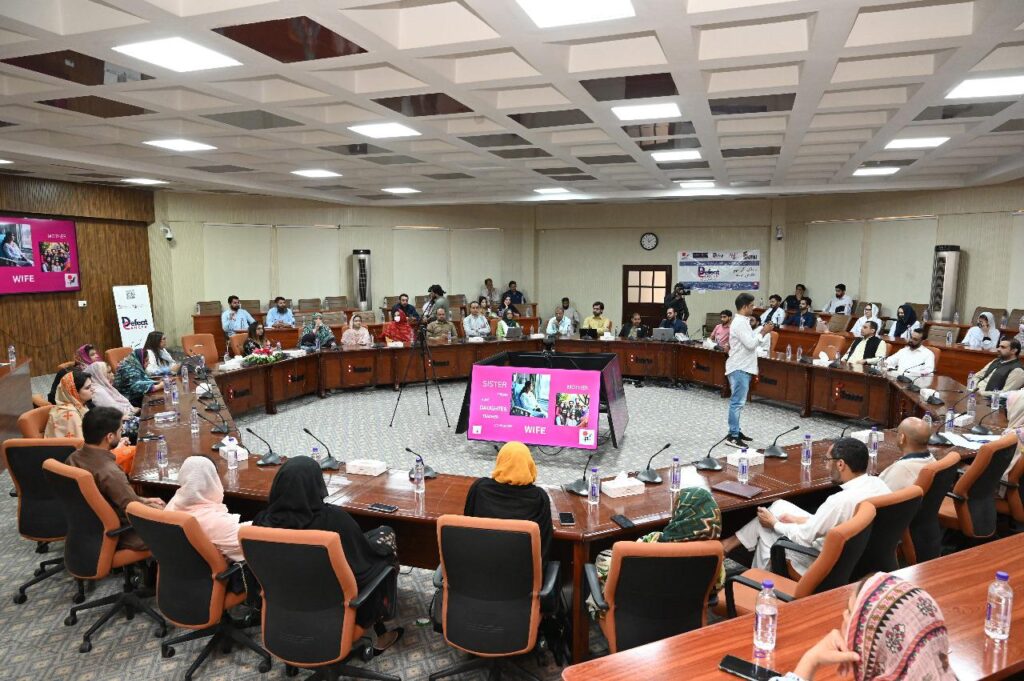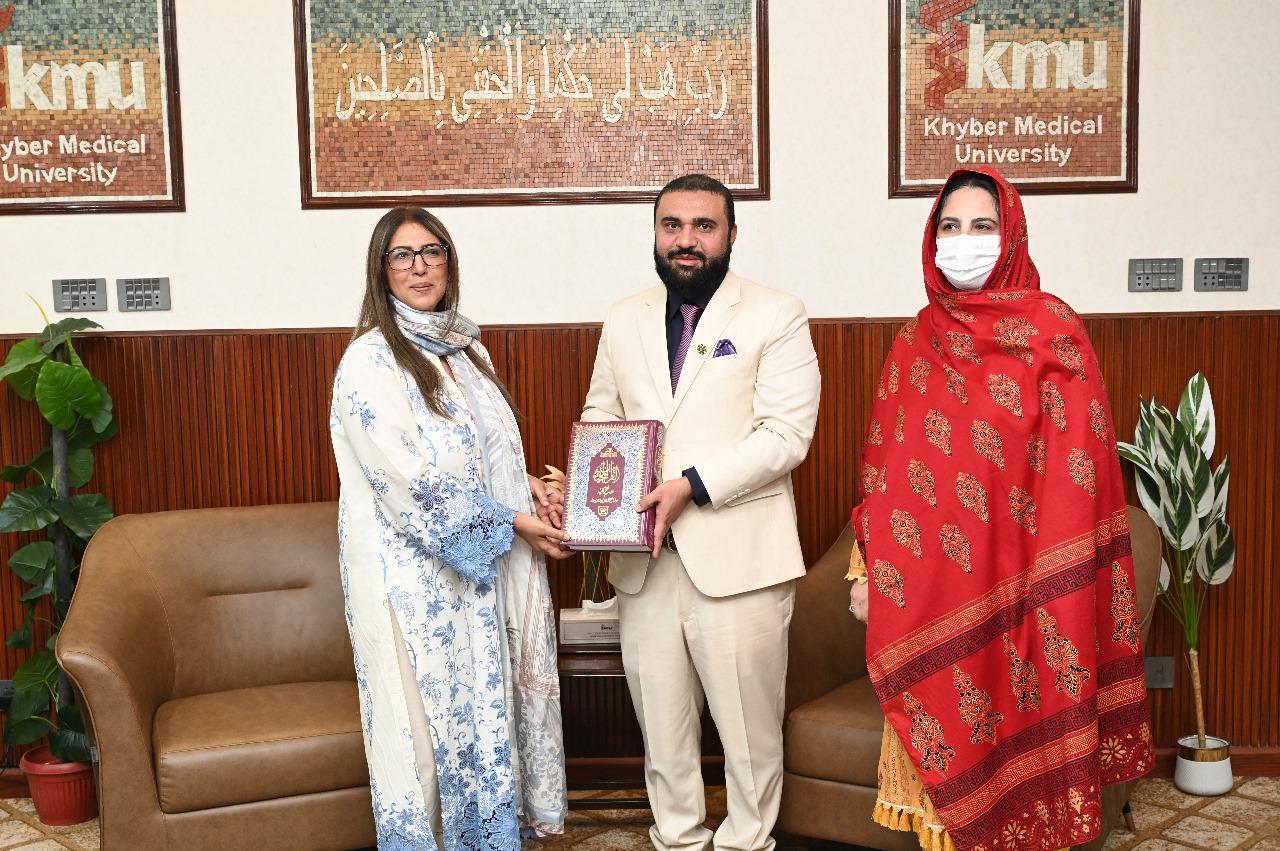Staff Report
PESHAWAR: In a landmark move, Pakistan has launched a holistic campaign against breast cancer one that acknowledges the disease not only as a physical threat but as a profound psychological burden as well.
For the first time, mental health has taken center stage in a breast cancer awareness and intervention initiative, signaling a shift in how the country tackles one of its most pressing public health challenges.
The “Defeat Cancer” campaign is a collaborative effort between Khyber Medical University (KMU), the Pakistan Institute of Living and Learning (PILL), and the University of Manchester, supported by the UK’s National Institute for Health and Care Research (NIHR).
A Hopeful Beginning in Peshawar
The campaign was officially launched on July 10 at KMU in Peshawar, drawing a diverse crowd of oncologists, psychologists, lawmakers, students, cancer survivors, and community leaders.

Participants were confronted with grim statistics: one in every nine women in Pakistan is at risk of developing breast cancer, and the disease claims over 90,000 lives each year. Even more concerning is the survival rate while Western countries report survival rates of 90–95%, Pakistan lags behind at just 40–50%.
Experts attributed this alarming disparity not only to delayed diagnosis and lack of awareness but also to the neglect of mental health in cancer care.
“It’s not cancer that kills it’s silence and isolation”
The emotional highlight of the event came from Dr. Zobia Afshan, a breast cancer survivor who shared her journey:
“It’s not cancer that kills its people’s attitudes, the silence, and the loneliness. Patients need more than medication. They need courage, support, and someone to listen.”
Healing Beyond Medicine
Under PILL’s “Moving On After Breast Cancer” program, over 100,000 women across the country will be screened for mental health concerns, and 26,000 women will receive psychological counseling to help them reintegrate into life after diagnosis and treatment.
So far, 1,874 individuals have undergone mental health screening, revealing that 1,050 women are suffering from moderate to severe depression. The program is currently operational in 22 cities, 26 districts, and seven major hospitals and offers all services free of cost.
Breaking the Silence Around Mental Health
Lubna Khan, Director of Global Mental Health Research at PILL, emphasized the campaign’s unique focus:
“This is not just an effort to defeat a disease, but to dismantle the stigma, fear, and social isolation that surrounds it. We’re treating the whole person not just the tumor.”
Dr. Tayyaba Kiran, Associate Program Director, noted that new breast cancer screening centers have already been established in Swat and Dera Ismail Khan, enabling access for women in under-served areas.
A National Priority, Not Just a Medical Concern
Professor Dr. Zia Ul Haq, Vice Chancellor of KMU, highlighted the need for an integrated national response:
“Breast cancer awareness, screening, and mental health rehabilitation must go hand-in-hand. This issue must be treated as a national health priority.”
Atta Ur Rehman, Research Support Manager at PILL, added:
“Cancer isn’t a solitary battle. It’s a shared fight. Institutions alone can’t win this society must play its role.”
Community at the Core
Mian Atiq Ur Rehman, a national community leader and social worker, emphasized the campaign’s grassroots approach:
“By engaging local leaders and volunteers, we ensure this message of healing and support reaches homes and hearts across Pakistan.”
Bilal Ahmad Khan, General Manager of Evidence Synthesis at PILL, added that the team is also conducting a global review of awareness campaigns in collaboration with University of Manchester:
“We’re reviewing the awareness campaigns and intervention” to understand which awarenss campaign works more effectively so that we can tailor effective, culturally appropriate strategies for low-resource settings.”
A Message of Solidarity and Strength
In his closing remarks, Raja Umair Ahsan, Operations Manager at PILL Peshawar, shared a powerful message:
“Those battling cancer are not only physically exhausted they face immense psychological strain. This campaign tells them they are not alone. Our goal is to ensure that both mental and physical health are prioritized, and that no woman feels abandoned in her fight.”
Conclusion: A New Chapter in Cancer Care
The Defeat Cancer campaign represents a transformative shift in Pakistan’s public health landscape one that blends compassion with clinical care, and psychology with pathology. By integrating mental health into the cancer conversation, it offers not just survival but dignity, support, and a renewed sense of hope.

